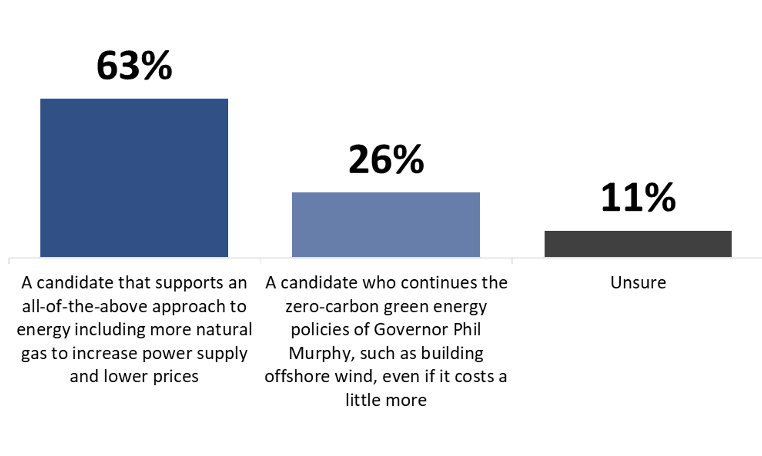New Northeast Polling Shows Even Blue States Back Natural Gas
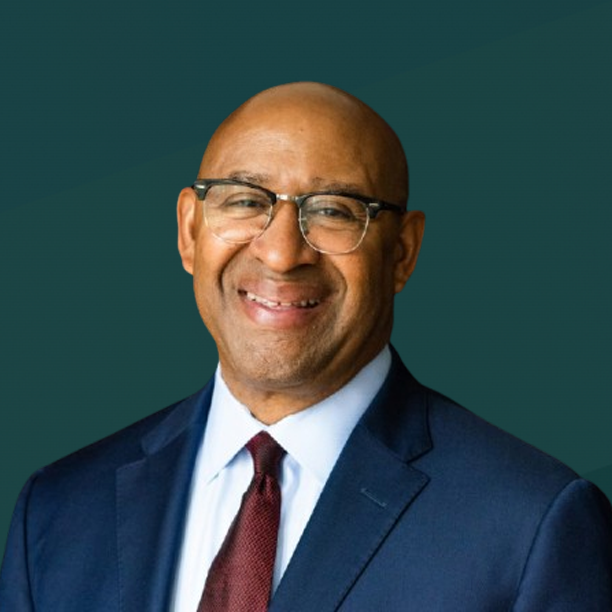
By: Michael Nutter, former Mayor of Philadelphia
Despite the conventional wisdom that Democratic-leaning states are opposed to natural gas and are ready to embrace a zero-carbon-only approach, the numbers tell a far different story. Polling commissioned in late May across eight northeastern states including New Jersey, New York and New England by Natural Allies for a Clean Energy Future shows that voters in some of the bluest states in America overwhelmingly support natural gas as part of a balanced, common-sense approach to energy that partners with renewables.
Across the country, and especially in blue states, voters are sending a clear message: when it comes to energy policy, the majority of households prioritize reliability and affordability first. Coming out of the 2024 presidential election, energy is an easy place where Democrats can come back to where voters are by addressing commonsense, kitchen table issues that appeal to the working class.
The Most Popular Energy Policy: Renewables and Natural Gas Together
With a growing power supply and demand crisis that is driving up prices everywhere – due to electric vehicles, cloud computing, AI and more – the northeast is particularly vulnerable. Natural Allies tested six often discussed policy solutions. The most popular, at 66% support, was balancing renewables and natural gas together, over more nuclear (61%), renewable only (60%), and building more natural gas pipelines (58%). The lowest scoring message – even lower than expanding coal power – was the current energy status quo in much of the northeast: blocking natural gas pipelines, using more fuel oil, and importing foreign energy at a higher cost (22%). In fact, while Democrats were most supportive of a renewable-only future (83%), Democrats also embraced the message of balancing more renewables and more natural gas, at 76%, proving natural gas is safe political ground.
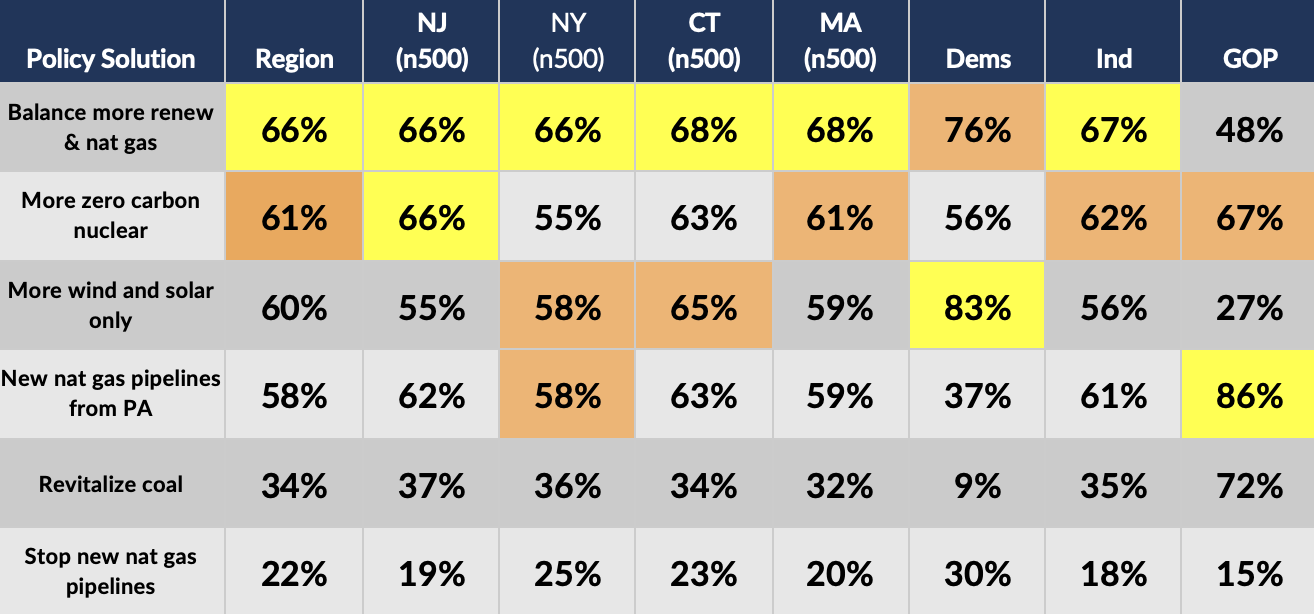
80% Support for Gov. Lamont’s Balanced Energy Approach Including Natural Gas
We analyzed comments from Democratic Governor Ned Lamont (CT), who against the backdrop of skyrocketing power bills, said that Connecticut needs more natural gas alongside renewables to protect reliability and affordability. He later added he wanted to work with both parties to reduce costs. Despite loud opposition from narrow special interest groups opposed to natural gas, our survey found over 80% of Connecticut voters backed his plan.
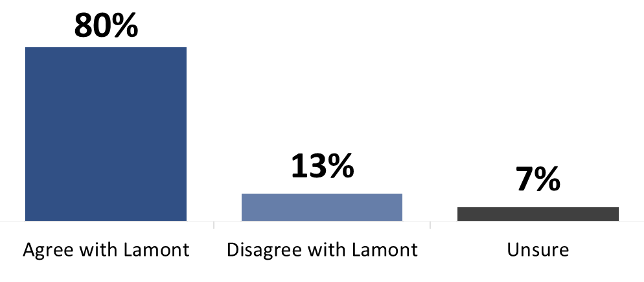
Natural Gas is the Second Most Popular Fuel Type, Behind Only Solar
Natural gas is nearly as popular as solar, and more positive than offshore wind, across key states in the northeast as well as among crucial independent voters. The chart below shows the net rating of the positive and negative views of each fuel type.
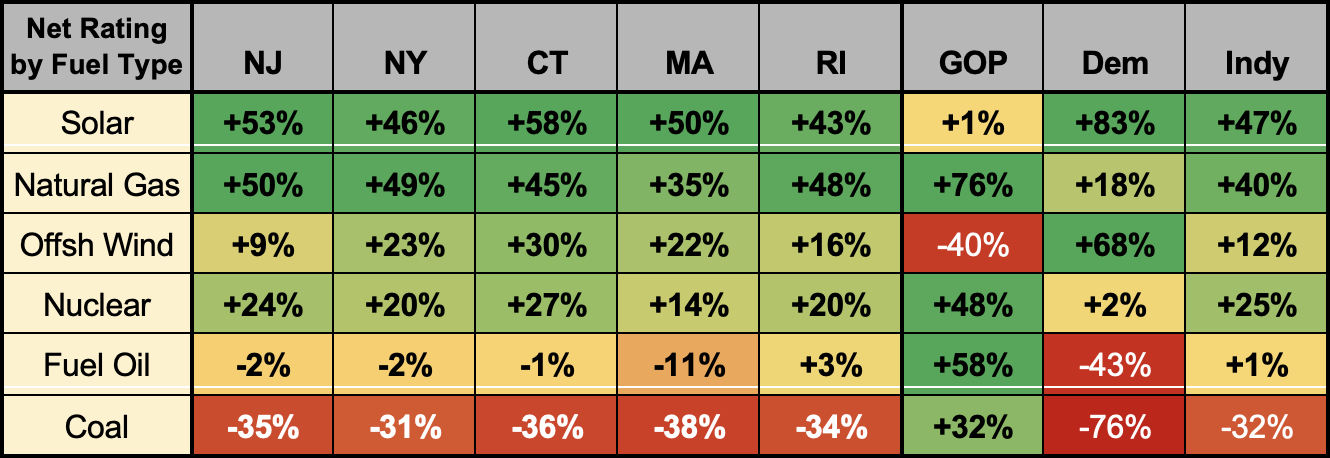
Voters Want New Jersey’s Next Governor to Get Back to Basics on Energy
In New Jersey, 20% rate increases beginning this summer have catapulted the energy debate into this year’s gubernatorial election. There, despite relying on natural gas for over half of its electricity and heating three-quarters of homes, state leaders have opposed natural gas expansion for much of the last decade and embraced a narrow approach on offshore wind that began to collapse in 2023. Our survey found by a 37-point margin, 63% of New Jersey voters support candidates who include more natural gas in the mix over those solely focused on zero-carbon only policies. That’s not just a statistic, it’s a signal that voters want practical solutions that work for real families.
Voters Oppose Gas Bans, and Electric-Only Heat Pumps Lack Consumer Demand
Oftentimes, those from the far-left who want to end natural gas promote electric-only heat pumps as the solution – banning new natural gas hookups, and moving homes to the less-reliable electric system for heat. Not only does electricity cost 3-5 times more to operate, only around 8-10% of consumers are expressing interest in replacing their current furnace with one. Voters also support consumer choice over gas bans by a wide margin.
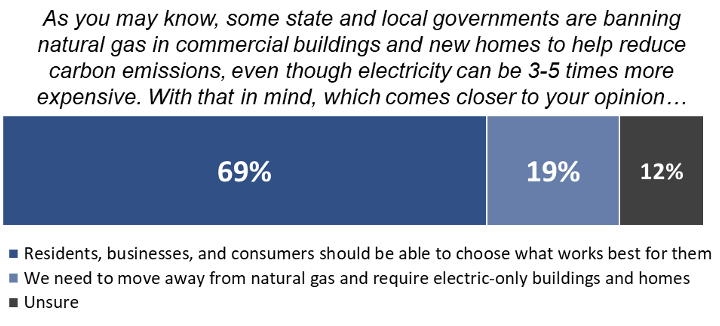
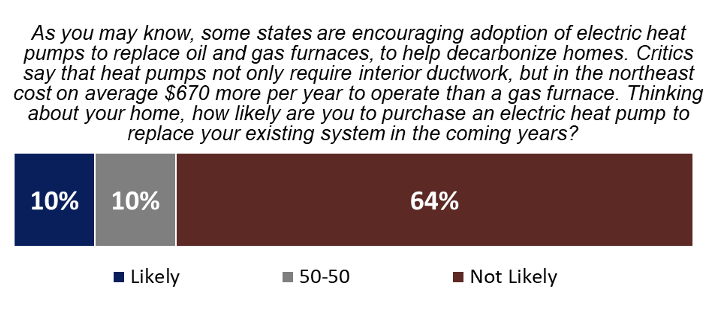
New York, Massachusetts, and Rhode Island All Demand a Balanced Approach
New Yorkers oppose by a 59-21% margin, the state’s position of blocking new natural gas pipelines from Pennsylvania to restore grid reliability and lower costs. Additionally, 71% of voters oppose recent efforts to ban natural gas and require building electrification – preferring consumer choice instead.
In Massachusetts, one of the most reliably blue states in the country that has battled gas infrastructure for years, voters say Massachusetts should make it easier to invest in natural gas infrastructure in the state by a 63-20% margin. Voters also agree by a 74-4% margin that the state should find ways to access natural gas from Pennsylvania, rather than import from foreign countries including Russia as it has done in years past.
Rhode Island tells a similar story: 68% support a balanced energy policy that includes natural gas and renewables. A striking 84% say their electric bills are too high – the highest of all the states tested.
Conclusion
The takeaway is clear: even in some of the most Democratic states in the country, voters see natural gas as essential to affordability and reliability. They know natural gas has already helped the United States achieve historic reductions in greenhouse gas emissions while keeping costs down.
Voters are telling us they support renewables, but not without natural gas alongside them. They want leaders to pursue practical, balanced solutions that deliver affordability, reliability, and climate progress. When blue state voters stand with natural gas, it proves that this is more than good policy. It’s smart politics, and it’s the kind of leadership our communities deserve.

